
There is a fine line between “thorough analysis” and “looking too deeply” when it comes to watching movies. After all, perceiving “The Care Bears Movie” as a Deep State psychedelic-warfare training video is an all too common conclusion made by many a cinephile.
Nonetheless, if a movie is well made, its politics, a catch-all term for themes and ideas, can be grasped by a wide variety of viewers without the need for them to be explicitly stated. Yet, sometimes a movie’s politics can be so effectively communicated that we start to feel rage at the movie itself, an experience that, in my opinion, can be quite thrilling. After all, better to be angry at a well-made movie than tolerate a blandly-constructed one.
The following list is my attempt to showcase how our frustration/disgust with a movie’s politics does not necessarily guarantee a hatred of its craft. These movies can actually teach us quite a bit about cinematic storytelling techniques given their success in drawing such strong reactions from us. The angst will still pulsate, but at least we won’t be wasting our time.
1. Metropolitan (1990)
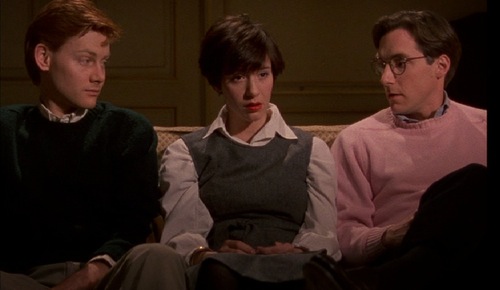
It can be infuriating watching Whit Stillman’s bourgeoisie bildungsroman right after John Carpenter’s “They Live.” Seeing these hedonistic young elites playing strip poker and expressing their fear at the decline of their social class makes you want to put on some sunglasses and see for yourself if they are indeed skeletal alien invaders. The attempt to draw sympathy for the struggles of the wealthy in “Metropolitan” comes across as insultingly inconsequential, given how the film itself showcases how the worst-case scenario for a young Ivy League trust funder is that they may find themselves in a job they hate.
Films indicating the corruption and ridiculousness of the upper-class, like “The Rules of the Game,” “Salo,” and the aforementioned “They Live” have always had vastly greater staying power. This is because those movies acknowledge the societal implications that come with the super-wealthy, i.e income inequality and political corruption, which are factors “Metropolitan” skirts over. In fact, when one of the film’s young Manhattanites bemoans “The Discreet Charm of the Bourgeoisie” for its ridicule of the upper-class, I wanted to pull a “Last Action Hero” by climbing into the screen and body-slamming the twit.
Still, “Metropolitan” has a genuinely fun script, and its nuanced portrayal of the various social games young people play with each other is quite engaging. Furthermore, Chris Eigeman gives such an amazing and hilarious performance as the character Nick that it puzzles me why he never became a mainstream movie star. It is just a shame that the film’s good writing and Eigeman were in service to a subject matter that works best in blistering satire.
2. Darkest Hour (2017)
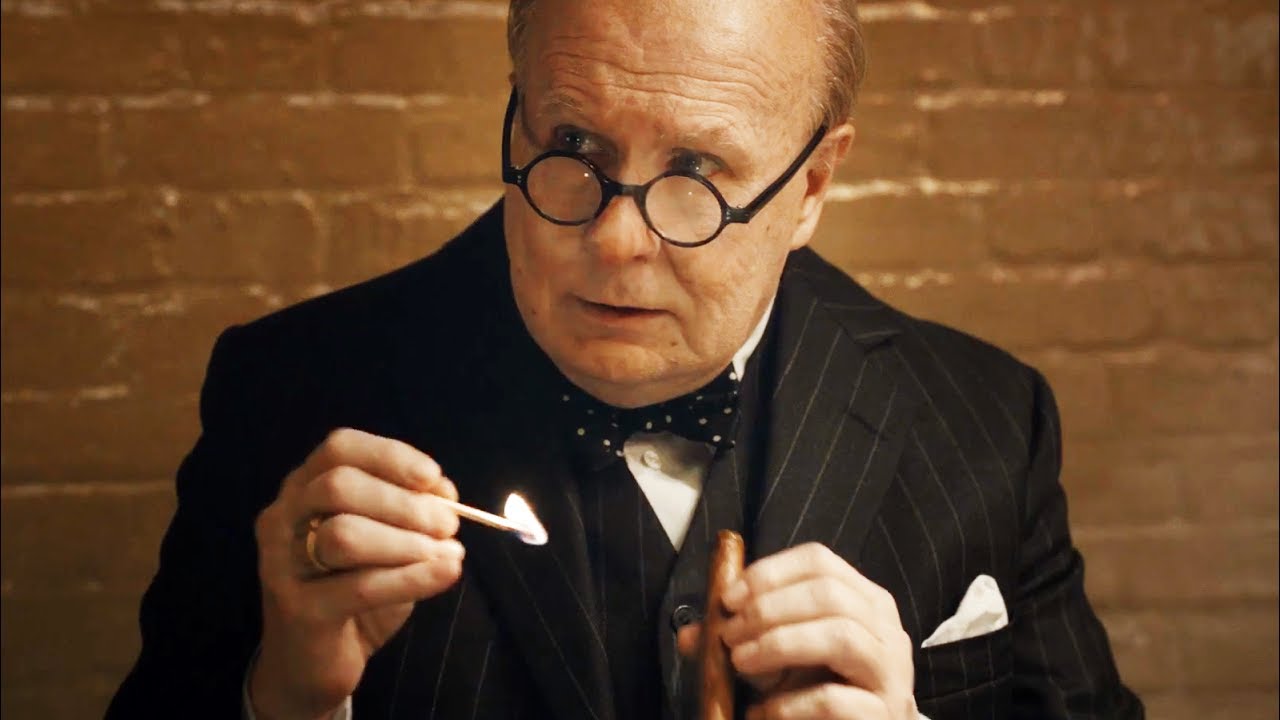
With blood-ties to Bosnia, a formerly socialist state, I have a particularly strong allergic reaction to propaganda. “Darkest Hour,” or “Oh Britannia 4ver The Movie,” refuses to showcase Winston Churchill in a substantially critical light, a subject matter with thousands of pages worth of complexity. Instead, the movie sandwiches Churchill’s cabinet in-fighting with numerous scenes of verbal chest-pounding regarding British national strength, the tactic ultimately coming across as dull choir preaching.
Yes, the Nazis were bad and Britain had to be strong, but do we really have to sit through 125 minutes extolling something that was self-evident? Beyond the British historical propaganda, all we end up learning about Churchill was that he was a strong orator and a drunk, simplistic elements more befitting of a Capitol Hill intern than the “Greatest Briton Ever.”
Still, it’s hard to deny the strength of Gary Oldman’s Churchill, with the actor imbuing Churchill with sensitivity and surprising delicacy, thus elevating the character from how simply he was written on the page. Bruno Delbonnel’s cinematography is equally great, the tracking shot involving the chaos of the London streets and Hitler-masked children being a particular highlight.
As with “Metropolitan,” it was the limp approach to its subject that was most egregious. Had the movie’s script simply eased up on its nationalistic fellating and given a more thoroughly analyzed and critically approach to its mythical protagonist, it could have been quite the riveting excursion.
3. Gone with the Wind (1939)
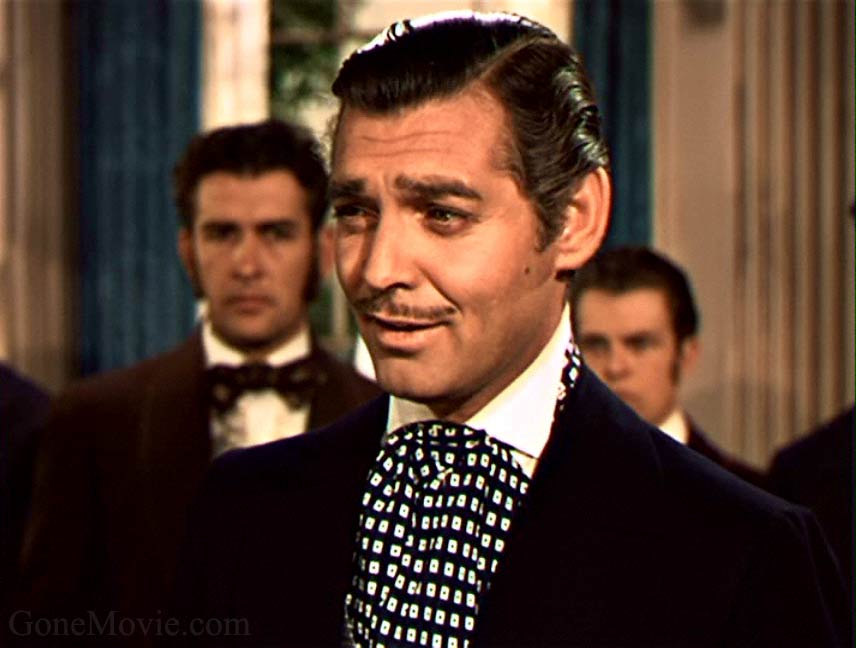
“Gone with the Wind” is historical whitewashing and its themes are centered around Civil War-era Southern Pride, an element founded upon the destruction of an entire race of people. The movie does not showcase why its black characters stick around their oppressors, why any and all Union-aligned characters are portrayed as degenerates foaming at the mouth, or why we should at all be interested in plantation owners that profited off of a culture of dehumanization and genocide.
Had “Gone with the Wind” took the effort to effectively communicate the intricacies of its subject matter in a nuanced and realistic manner, it might have escaped this chubby Slav’s condemnation. Alas… Victor Fleming and David O. Selznick ended up being more interested in appeasing America’s white supremacist sensibilities with this Southern fantasy. And yet… it’s still a well-made movie.
It’s difficult not to respect the numerous set pieces in “Gone with the Wind,” from the burning of the O’Hara mansion to the legendary shot of the hundreds of wounded Confederate soldiers. Furthermore, it would be silly not to praise Vivien Leigh and Clark Gable’s sublime performances, and, “Frankly, my dear, I don’t give a damn” is about as sexy of a closing line as it gets.
Nonetheless, viewing “Gone with the Wind,” in addition to “The Birth of a Nation,” another Southern White Supremacist Fantasia America fawned over, ought to be done with a thematically critical look. Respect its craft, learn from it, but understand the historical context in which it was made.
Such an interpretation can grant the audience further insight into the more racially and nationalistically charged elements of the movie, and in turn, can help us understand the movie’s social impact. “Gone with the Wind” can still be appreciated, but it would be juvenile to ignore its sugar-coating historical revisionism underneath its Southern Belle-oriented melodrama.
4. Incredibles 2 (2018)
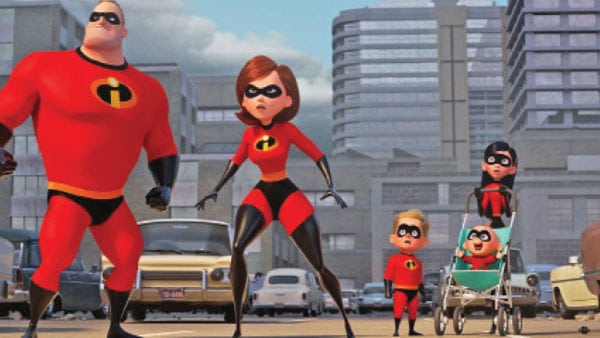
The first “Incredibles” might have been the greatest superhero movie ever made, an exquisite cocktail of emotional and psychological weight, exhilarating action, and fascinating superhero lore begging to be expounded upon.
Yet the movie barely touched upon its idea of how we need to rely on superhumans to solve our crises. However, the notion was at the very least effectively peppered in, ala the super geek/warmonger normie villain Syndrome. When it came time for “Incredibles 2,” I was hoping for a more in-depth look at the push and pull between the supermen and the salt-of-the-earth humans, and thus a more thorough challenge to supers’ place in society.
Instead we got a rehash of the first film, extending to the sequel’s boring villain whose motivation was simply a neutered version of Syndrome’s. Screen Slaver/Evelyn Deavor wants to ban supers because they suck and mankind does not need them, thus reducing a key factor of the original film’s lore to a sticky note. Yet still, the animation and accompanying action set pieces are so superb that you wish more comic book movies were in animated form, and the dialogue and jokes are as crisp as they were back in 2004.
However, it’s a shame that “Incredibles 2” fails to develop its idea that supers are the one and only saviors of humanity and that it’s best to let them operate untethered. Such an ideology smells awfully like the Austrian School of Economic Thought, which posits that societal progression can only occur through the achievements of exceptional individuals. While one may think that Disney wouldn’t dare weave such socio-economic propaganda into its family-friendly entertainment, I wouldn’t put the notion past a company that engages in a borderline erotic level of ruthless capitalism.
5. Chasing Amy (1997)
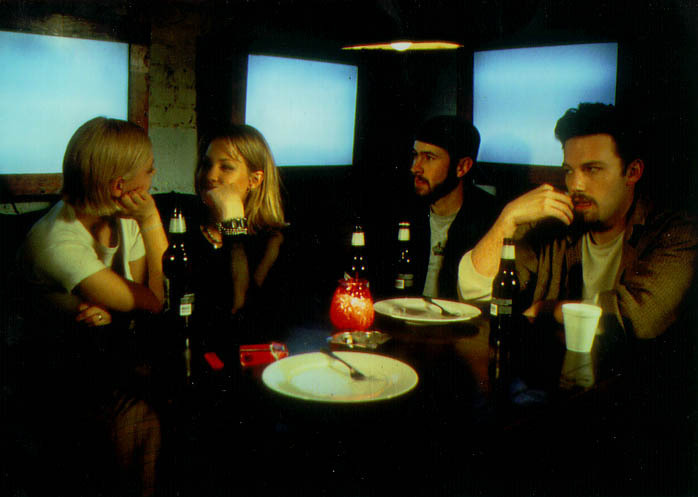
“Chasing Amy” is undeniably one of Kevin Smith’s best as it successfully manages to synthesize the writer/director’s trademark raunchy dialogue and intimate focus on meandering outsiders with a strong emotional core that had not really been seen in his work up until 1997.
The iconic lesson that Ben Affleck’s Holden learns from Silent Bob is still a good one: don’t compare your romantic/sexual experience with your partner’s. Yet despite its merits, the film’s take on LGBTQ individuals can often come across as disingenuous, and it does not go as far or as harshly enough into deconstructing its protagonist’s rather unhealthy relationship with women.
Alyssa, the object of Holden’s affections, is showcased from the get-go to be gay. While I don’t have a problem with Holden romantically pursuing Alyssa despite knowing her sexual orientation, since the conflict grants insight into the two’s characters, Alyssa almost instantaneously pursuing love with Holden after a confession in the rain just seems unrealistic.
It’s not just that Holden confessed his love for Alyssa: he also aggressively tried to convince her to reciprocate his feelings, essentially asking her to forgo a core facet of her identity just for him. Alyssa just complying after a few minutes of rage borders on the fantastical; people don’t, as the great Joey Diaz says, “switch governments” just like that.
Second, “Chasing Amy” only somewhat addresses Holden’s insecurity toward Alyssa’s thorough sexual experiences. Given his aforementioned possessiveness and tendency to idealize/put undue expectations on his partners, Holden still has a lot of work to do on himself. “Chasing Amy” could have been stronger had it been more willing to show us the depths of Holden’s intimacy problems. Smith appears to want to take stock of toxic masculinity, but does not seem to be brave enough to probe through the really ugly bits.
Still, “Chasing Amy” is the movie I admire the most from this list given how it at least tried to communicate, with Smith’s personal flavor and vulnerability, the ugliness and pain of romance. The movie’s politics may be undercooked, but it is clear Smith’s heart is in the right place.